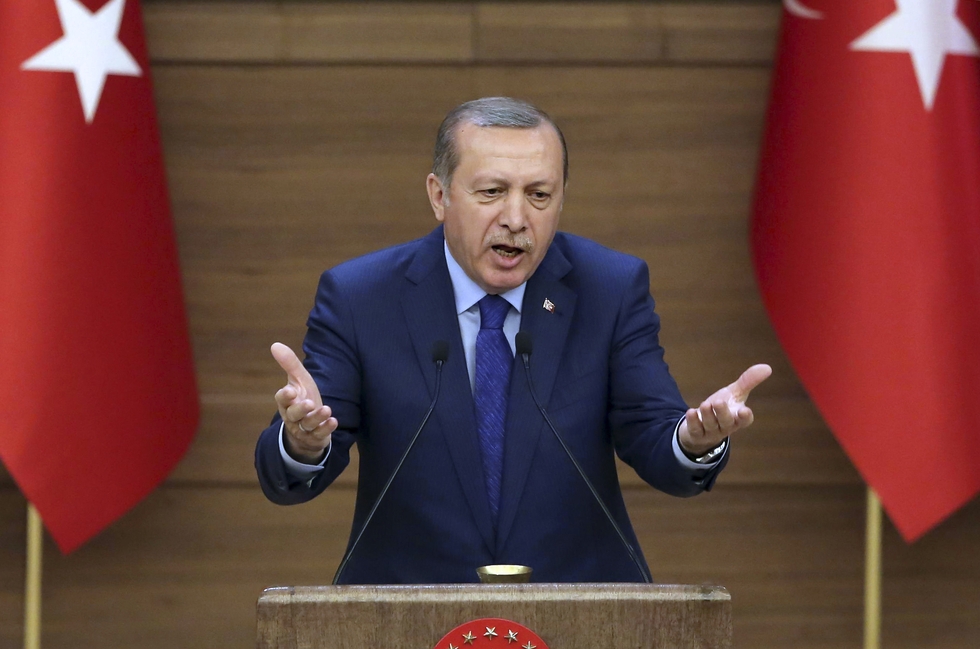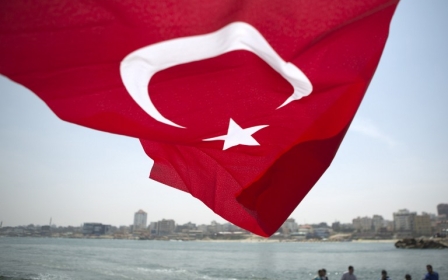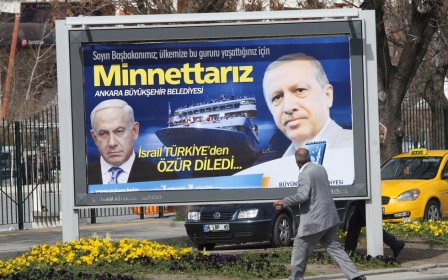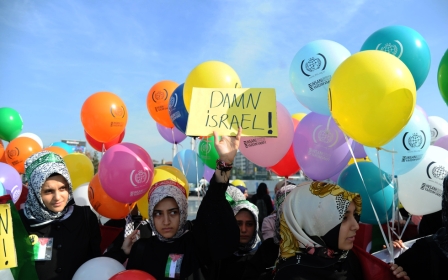Erdogan: No deal with Israel while Gaza under blockade

A spokesman for Turkish President Recep Tayyip Erdogan has said that any formal reconciliation between Turkey and Israel is impossible without the lifting of the siege on Gaza.
The comments come in spite of frequent announcements from Turkish and Israeli officials that the two countries were only weeks away from reconciliation.
"What happens in Gaza is unacceptable, the occupation by Israel must end," said Ibrahim Kalin, Erdogan's spokesman adding that the humanitarian crisis in Gaza needed to be addressed.
One point of contention has been Turkey’s demand to be allowed to send a power generator ship to the Hamas-controlled Gaza Strip in order to supply electricity to the impoverished enclave.
Electricity outages have been frequent in Gaza since the imposition of a blockade by Israel and Egypt in 2007, following the rise to power of Hamas.
But a Turkish official, speaking to the pro-government Daily Sabah newspaper said earlier that Ankara had withdrawn most of its demands concerning Gaza and was willing to settle on an Israeli commitment to ease the blockade and allow humanitarian aid into the Strip.
He added that on Monday that the two countries “do not agree 100 percent," and that there were “still certain hurdles we must overcome."
Despite the apparently fundamental differences with regards to Gaza, the Turkish official said that it was “extremely unlikely” that nothing would come of the talks.
“Neither side wants this to continue for much longer,” he said. “If Israel agrees to Turkey sending a power ship to the Eastern Mediterranean, respective ambassadors will start serving in Ankara and Tel Aviv in no time."
Israel and Turkey used be two of the staunchest allies in the Middle East with the former being the first Muslim-majority country to recognise Israel in 1949.
However, the killing of nine Turkish citizens on board the Mavi Marmara ship, which was attempting to break the siege of Gaza, in 2010 led to the severing of diplomatic relations between the two countries.
In addition, Erdogan’s often provocatively-worded public excoriations of Israel’s actions against the Palestinians further heightened tensions, while the continued allowance of Hamas officials to use Turkey as a base of operations has further rankled Israeli officials.
But the rise of mutual opponents in Syria and the Islamic State - as well as the breakdown in relations between Turkey and Russia upon whom the former is heavily dependent for gas supplies - has pushed the two countries into reconciliation talks.
“They [Turkey] need alternative sources of energy in case Russia turns Iran against them, and they're realising how isolated they are in the Middle East,” said Turkey analyst Ankarali Jan.
Jan told Middle East Eye that senior leaders in the AKP believed that the Israelis are able to exert an enormous influence on regional politics and that they would attempt a “two-track diplomacy” approach by engaging both Israel and Hamas.
“Even before they came to power, the first thing [former President Abdullah] Gul and Erdogan did before setting up the AKP was to do a tour of Israeli lobby thinktanks in the US,” he said.
“I think they might believe that if they can make themselves useful to Israel, their international reputation might be rescued from the doldrums, especially in the US.”
However, the Turkish IHH Humanitarian Relief Foundation, which organised the original flotilla to Gaza, slammed the potential thawing of tensions as "unacceptable" without certain conditions.
"It was the main request from all the participants, all the families, all the members of Mavi Marmara - they were saying we are not looking for apologies, we are not looking for compensation, our main purpose for going to Gaza was to end the siege," said IHH executive board member Huseyin Oruc. "Now it is not any part of the conditions and Israel is saying it will keep the blockade and that it is their legal right."
"If the agreement is without this, it is unacceptable," he added.
New MEE newsletter: Jerusalem Dispatch
Sign up to get the latest insights and analysis on Israel-Palestine, alongside Turkey Unpacked and other MEE newsletters
Middle East Eye delivers independent and unrivalled coverage and analysis of the Middle East, North Africa and beyond. To learn more about republishing this content and the associated fees, please fill out this form. More about MEE can be found here.




